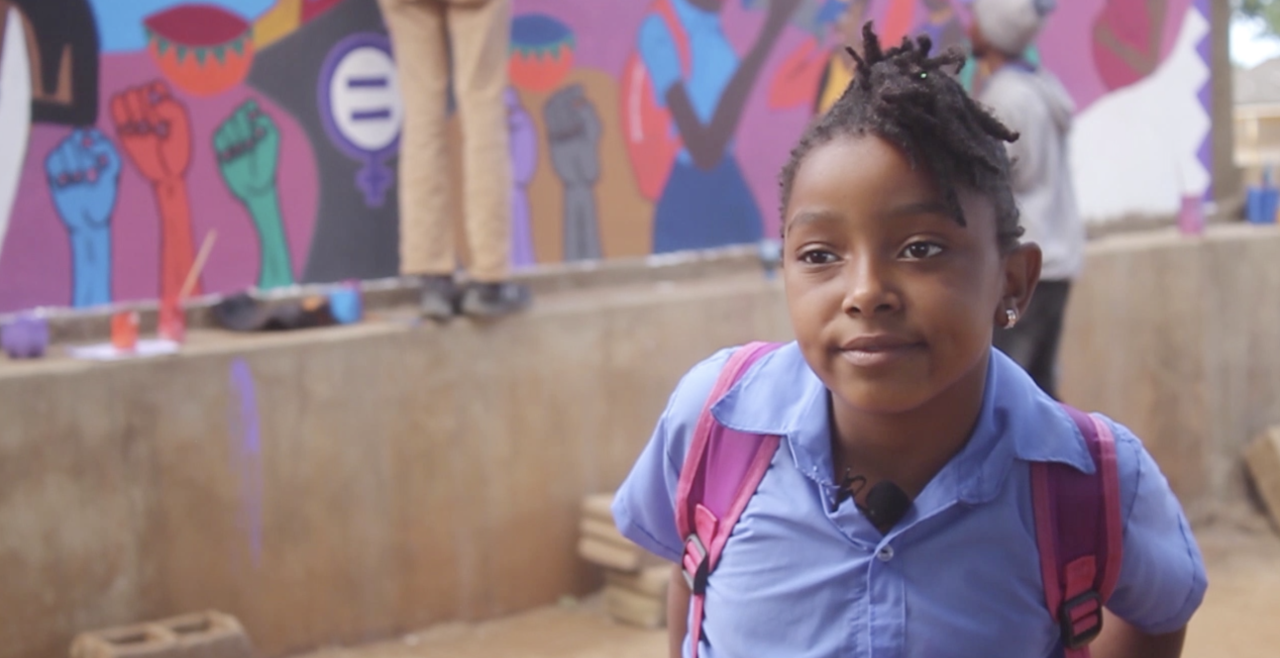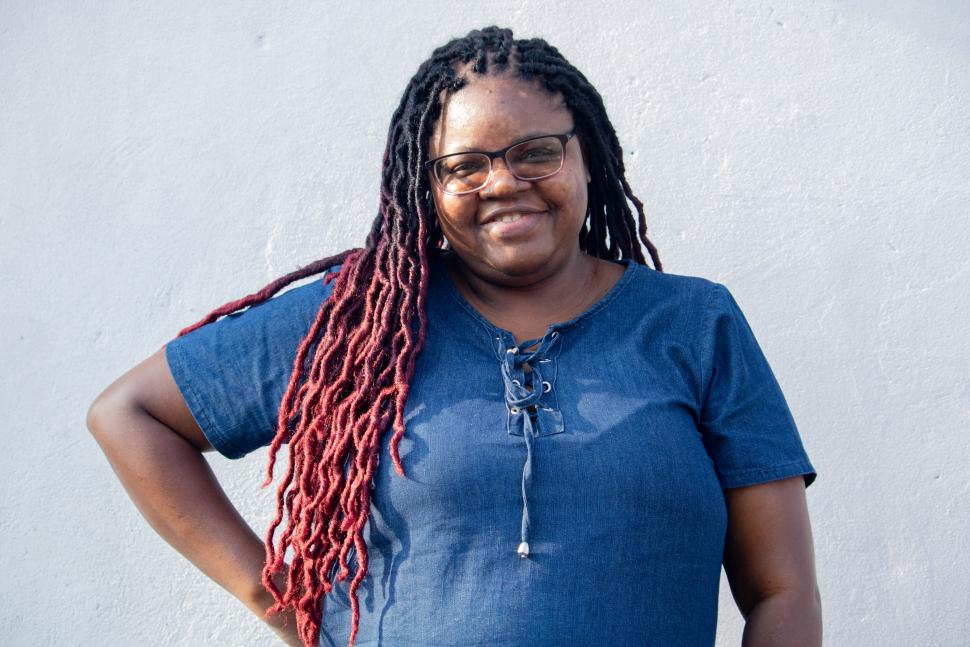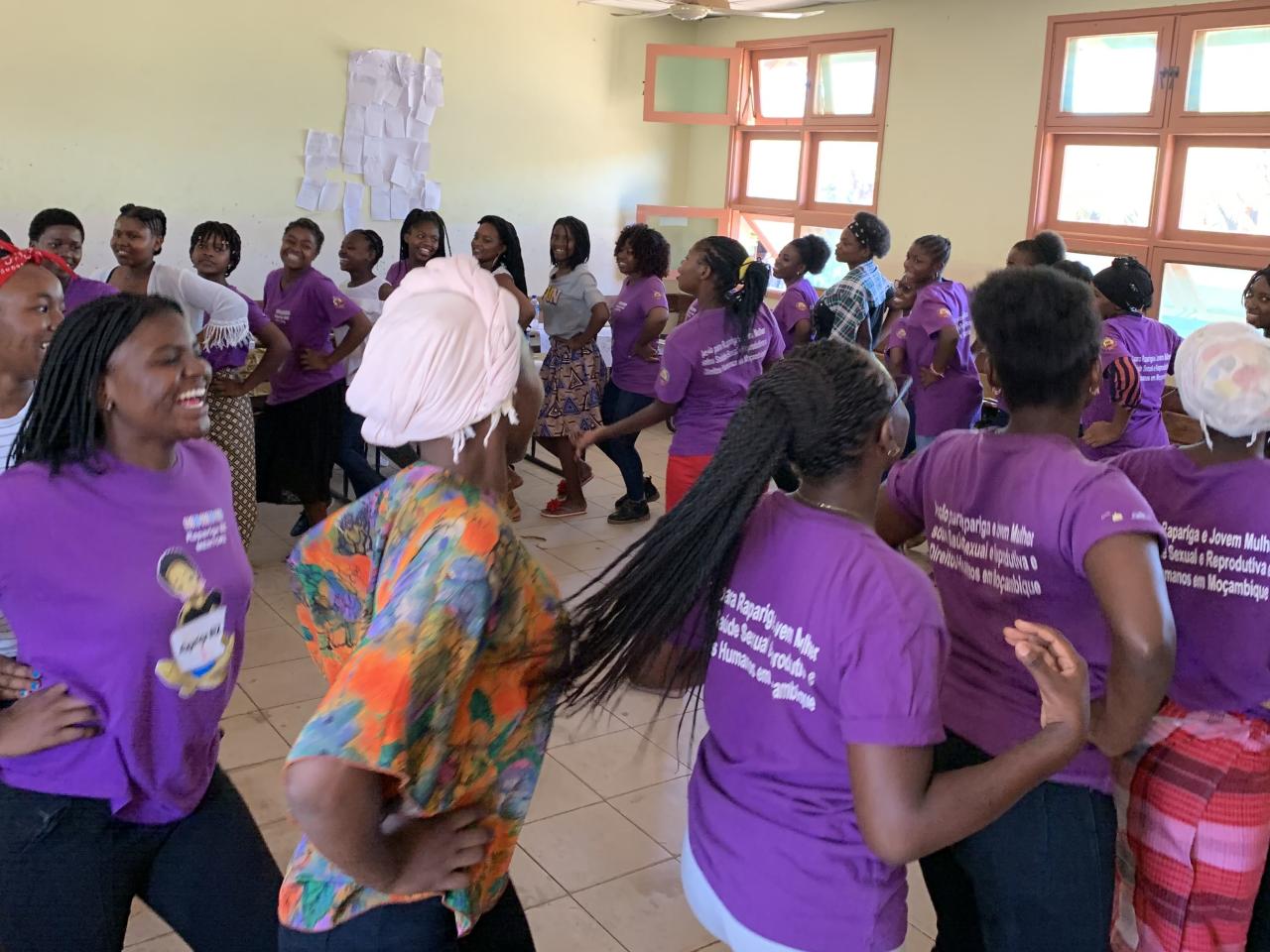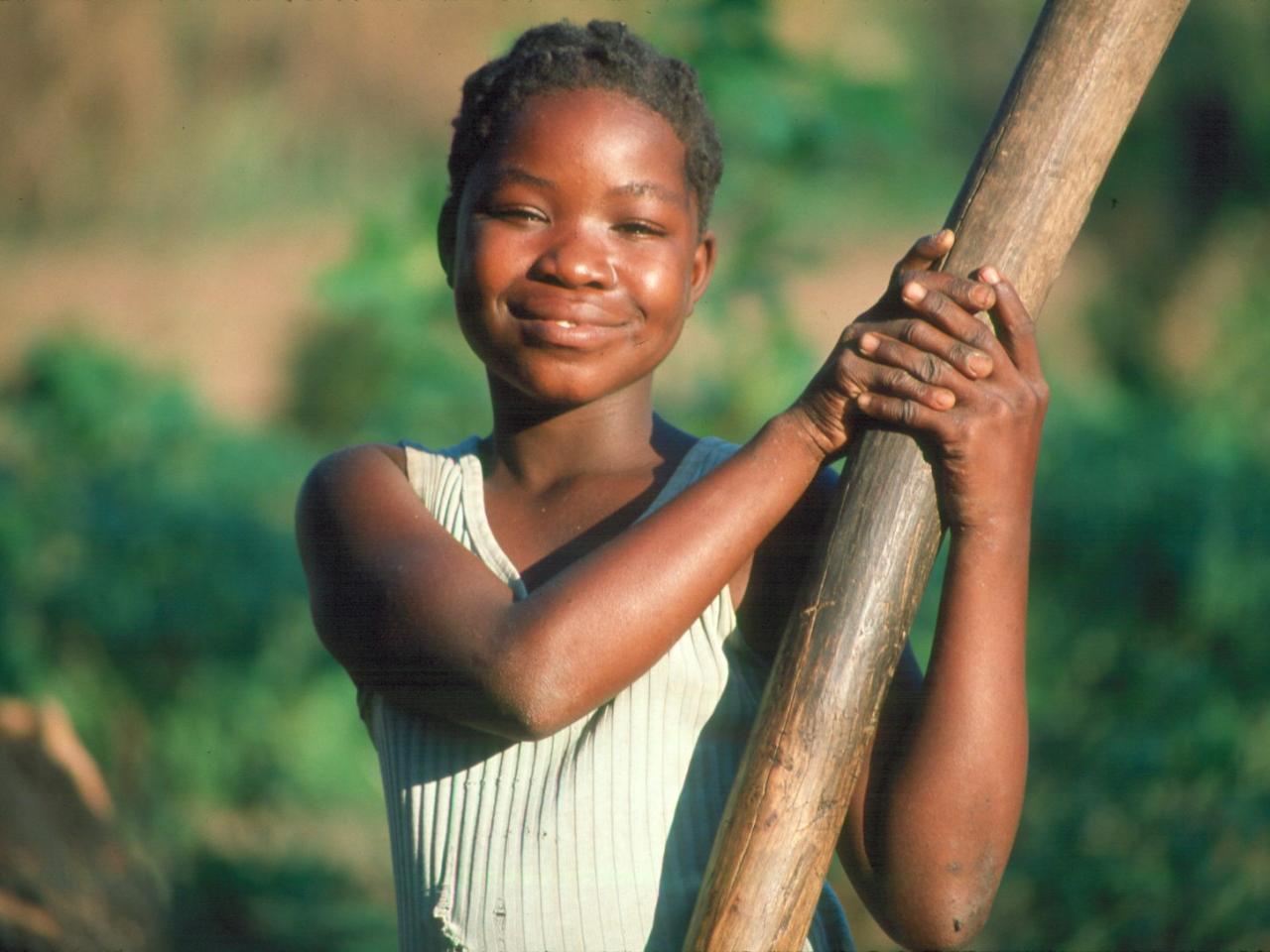“No one can touch my body without my consent” - preventing gender-based violence through art in Mozambique

MAPUTO, Mozambique – In conservative communities it can be difficult for a girl or a young woman to openly talk about gender-based violence or sexual and reproductive rights. However, art can be an empowering way for young women to express themselves without fear of being judged.
“From the mural, I understand that no one can touch my body without my consent. My body is my own and I say what goes” - Arsénia Langa, 6th grade student at Chongoene Primary School
Dalila Macuácua, 44, knows this well. She is the national coordinator of ASCHA (Associação Sócio-cultural Horizonte Azul), a feminist organization and Spotlight Initiative partner which uses “artivism”, or activism through art, to educate youth - particularly young girls - about their rights, gender equality and sexual and reproductive health and rights. They do so by engaging youth in discussions and in art activities such as dance, poetry, photography, and book binding.
Ms Macuácua founded ASCHA in 2005, after her sister died, leaving her with three orphaned children to look after. Determined to give them a good upbringing, Ms. Macuácua joined other activists in her neighborhood of Maxaquene, Maputo, and started ASCHA as a community-based organization to help vulnerable children and youth, like her own nephews and niece, stay in school.
Recently, ASCHA and Fórum Mulher [a national coalition of feminist organizations] partnered with local artists to paint a mural in a primary school in Chongoene district, Gaza province. The artists, all male, were asked to visually represent the ideas of youth, especially girls, about human rights, gender equality, and ending sexual and gender-based violence.
In an interview, Ms Macuácua tells us about the mural and what it represents to the local community.
What was the original idea behind this mural?
This idea came through our partnership with Fórum Mulher, under the Spotlight Initiative. We felt the need to promote a new way to reach, mobilise and educate youth on sensitive topics, such as sexual and gender-based violence, child marriage and gender inequalities in public spaces, inlcuding schools.
ASCHA has been promoting what we call “artivism” for some time, and together with Forum Mulher we thought that producing a mural would be a powerful tool to engage youth in a reflection on those sensitive topics, but in a recreational way.
Why did ASCHA choose women’s rights and gender equality as a theme?
We chose this theme because no nation can develop itself if half of its population [women and girls] is left behind and has its rights systematically violated. We saw this mural as an opportunity to amplify women’s voices and rights in the fight for human rights and gender equality.
Why did you choose a school, and who was involved in the creative process?
We chose a primary school because we believe that learning about respect, empathy and solidarity towards girls and women should begin in childhood. As such, before handing a blank wall to the artists, we held reflection sessions with male and female students and the wider school community about social norms, gender equality and sexual gender-based violence from a human rights perspective. Women and girls, in particular, were involved in conceptualizing the mural and selecting the elements that should be part of it.
Which message does the mural convey?
It conveys a message of respect, empathy, solidarity, and human rights – also calling for an end to sexual and gender-based violence and child marriage, while emphasizing the need to respect women and girls’ bodily autonomy, agency and voice.
The mural conveys a message of respect, empathy, solidarity, and human rights – also calling for an end to sexual and gender-based violence and child marriage" - Dalila Macuácua, ASCHA National Coordinator
How did the school community react to the mural?
Reactions were quite positive, and everyone felt involved – students, artists and teachers. Although some of the students are very young, they understand the messages and enjoyed participating in the creative process. They like to play near the mural. I would say the school took full ownership of it.”
[end of interview]
Rightly so, even the young ones, like sixth grader Arsénia Langa, already understand the messages well: “from the mural, I understand that no one can touch my body without my consent. My body is my own and I say what goes”.
Understanding their rights and recognizing signs of abuse from a young age is vital for women and girls, anywhere in the world. In a country where one in three women experience violence, and almost half of girls become pregnant during adolescence, this is of critical importance.
Since the Spotlight Initiative was launched in Mozambique in 2019, programme partners under the Government’s leadership have educated over 900,000 people to prevent gender-based violence and promote women and girls’ sexual and reproductive rights in their communities, almost doubling the number of people initially targeted.
One person at a time, this nation-wide social mobilization effort contributes to a change in perceptions, attitudes and behaviours within communities towards greater respect for women’s rights. This, in turn, ultimately supports a transformation of social norms towards a Mozambique where every woman’s and girl’s rights, bodily autonomy and decision making is understood, promoted, and upheld by all.
This interview has been edited for length and clarity. Translation by Leonor Costa Neves



